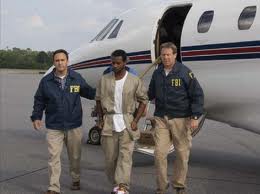Porous borders and the ease of international travel can create a legal nightmare for even the most innocent of travelers.
For example, a Swiss citizen traveling in the United States and renting an automobile can have a traffic ticket in any of a number of States and run afoul of a myriad of conflicted laws and rules as to extradition. For many business travelers conducting business in one nation, they may run afoul of anti-competitive laws, charges of price fixing or bribery. Often, these business practices are non-criminal in one nation and criminalized in another.
In analyzing an extradition case, start by obtaining the charging document from the Requesting Nation and listing the elements of the alleged crime. Step two is to obtain and read the extradition treaty in effect at the time of the event, or, at the time the Requesting Nation notifies the Requested Nation that extradition is sought. Step three is to define citizenship for each of the persons/parties involved. An accused who is a citizen of Switzerland accused of a crime against a U.S. citizen has a different treaty status than a U.S. citizen who resides in Switzerland and is wanted in the U.S. to face criminal charges. Dealing with even minor traffic infractions can have profound negative results. When entering the U.S., Homeland Security will arrest and detain you for an unpaid traffic infraction. You can remain in custody while Homeland Security contacts the State and asks if the State will pay the cost of transporting the individual. After a delay that can mean 60 days in a customs holding facility, the next step is removal, or denial, of entry into the United States. I’ll use Switzerland as an example to set a roadmap of what to ask and how to proceed. The steps are: Defining the elements of the charge, read the treaty, and identify the nationality of the accused and of the victim(s).
Switzerland and the United States have entered into treaties of extradition in 1900, in 1935, in 1940, and again in 1995. Understanding the process of extraditing United States citizens from Switzerland to face prosecution involves two basic issues: defining the crime and the national policy of the two nations. To understand the first stage we can review the case of the American film artist Roman Polanksi. Polanski entered Switzerland from France (where he lived at that time) to attend a film festival. At the request of the State of California (expedited through the State Department of the United States), Polanski was detained pending removal from Switzerland to the United States and then ultimately to California. He was never actually removed to the U.S. even though the U.S. alleged he failed to appear at his sentencing. His lawyers litigated the matter in equity in Switzerland and won. The Polanski case illustrates that by defining the elements of the Indictment charges (the ‘crime’) into the laws of the Requested Nation (Switzerland in the Polanski case) the results can be different. A good lawyer can mean the difference between a “routine” extradition or a blocked extradition. That is what happened in the Roman Polanski case, and it is an excellent study in the art of lawyering in the complexity of international extradition treaty law.
In all cases ask, “Is the crime charged in the United States also a crime in Switzerland?” Switzerland by treaty will not detain and extradite persons charged with financial crimes unless they are related to another crime, such as one of violence. Tax evasion is a crime in the United States but Switzerland will not detain and surrender a person charged with failure to pay taxes. Article Two of the Extradition Treaty with Switzerland states that the crime charged must be a crime in both the Requesting Nation and the Requested Nation before Switzerland can be compelled to extradite. Sex crimes are another example. In Switzerland, the age of consent for a sex act is sixteen years of age. In most, if not all states in the United States, the age of consent is eighteen. If the United States requests Switzerland to extradite a Swiss national for a sex act within the United States, the age of the purported victim may preclude extradition. If there is any degree of force or the threat of force, then the sex act is an act of violence and the age of consent issue is subsumed by the element of the use of force and extradition will be undertaken by the Swiss. Extradition from any nation to the United States begins with reading the treaties in effect between nations. Also, be mindful that although a nation may not be required by treaty to extradite they can extradite someone anyway. An extradition may be litigated in the nation of origin but once removed and transported the Requesting Nation may not secede jurisdiction if extradition is litigated there.
 South Florida Criminal Defense Lawyer Blog
South Florida Criminal Defense Lawyer Blog








 Felons are disqualified from most professions. Felons cannot obtain student loans. Felons cannot reside in Public Housing. Felons are denied educational and training programs. A household living in a public housing facility cannot receive back into their home a convicted felon family member; the entire family must be removed for housing a convicted felon. The systemic isolation and denial of the tools for rehabilitation serve neither the victim nor the community. Someone with a felony conviction is limited in his or her employment opportunities, housing and credit. In one generation, the U.S. prison population has gone up by a factor of four, as there are 2,200,000 inmates in U.S. jails and prisons, which is five to ten times the incarcerated rate of other democratic nations. One in nine inmates are in for life terms. Both
Felons are disqualified from most professions. Felons cannot obtain student loans. Felons cannot reside in Public Housing. Felons are denied educational and training programs. A household living in a public housing facility cannot receive back into their home a convicted felon family member; the entire family must be removed for housing a convicted felon. The systemic isolation and denial of the tools for rehabilitation serve neither the victim nor the community. Someone with a felony conviction is limited in his or her employment opportunities, housing and credit. In one generation, the U.S. prison population has gone up by a factor of four, as there are 2,200,000 inmates in U.S. jails and prisons, which is five to ten times the incarcerated rate of other democratic nations. One in nine inmates are in for life terms. Both 

 Most everyone loses his or her property before the criminal matter has been resolved. It is a big money maker for local government as well as for law firms that take a piece of the action for themselves.
Most everyone loses his or her property before the criminal matter has been resolved. It is a big money maker for local government as well as for law firms that take a piece of the action for themselves.
